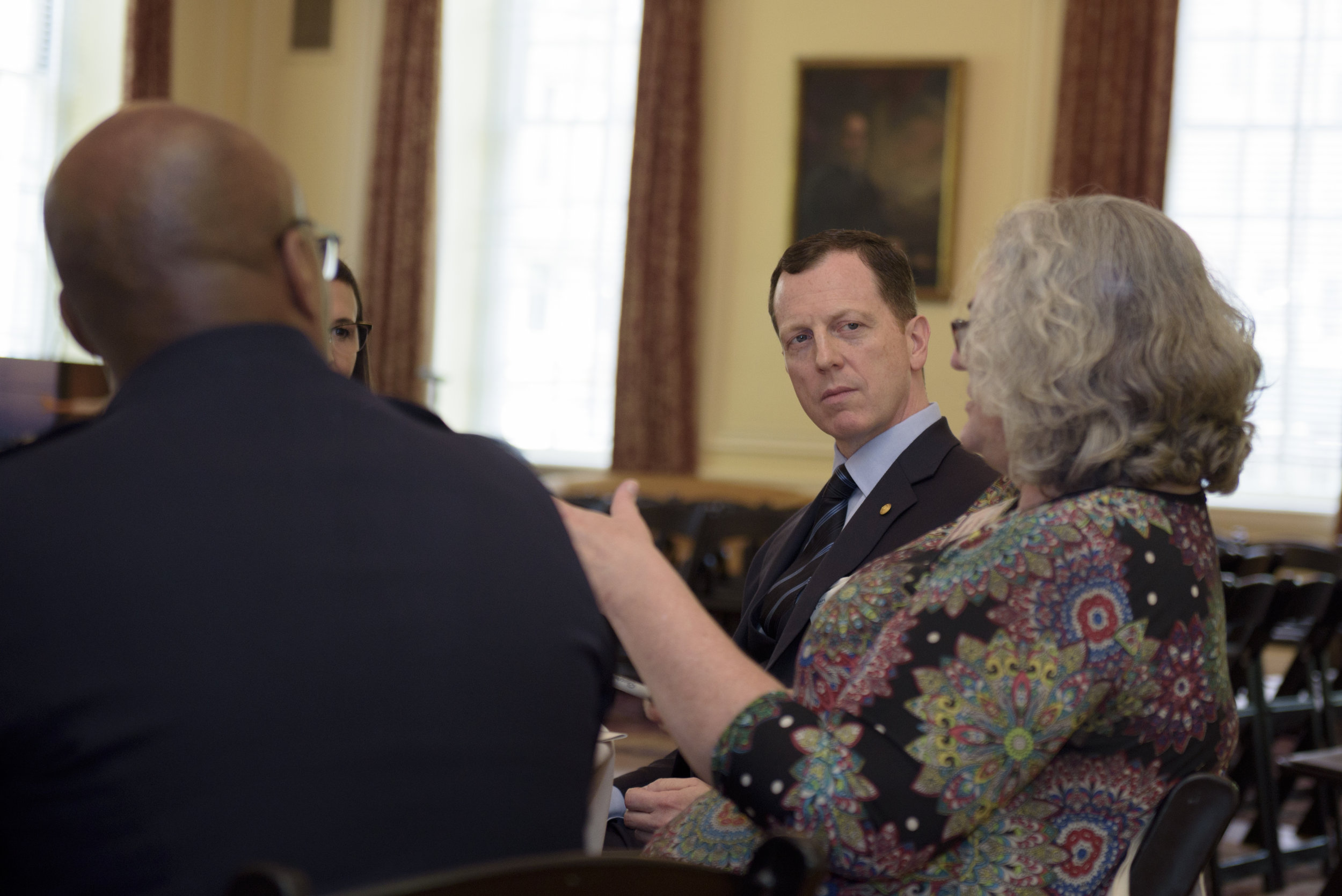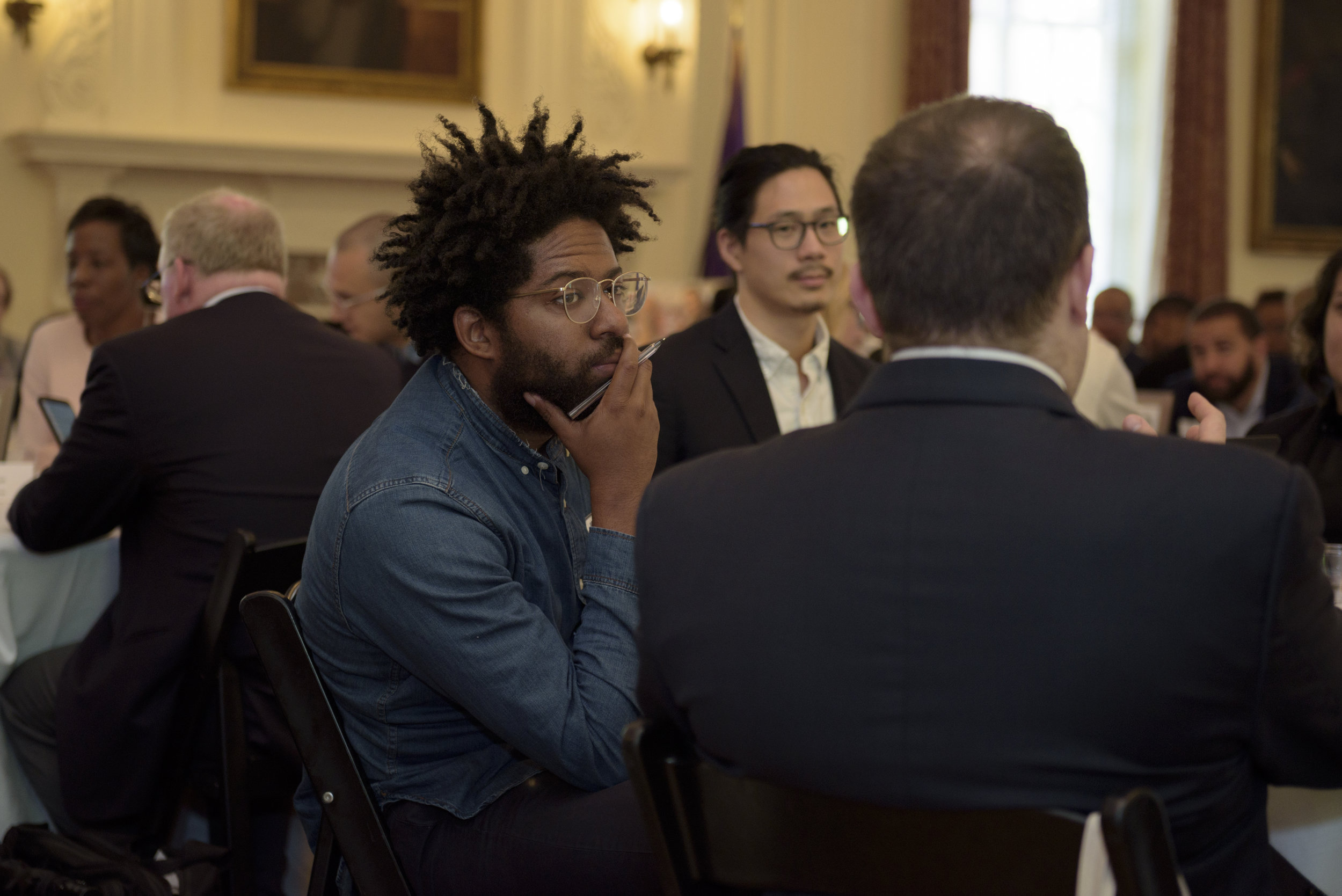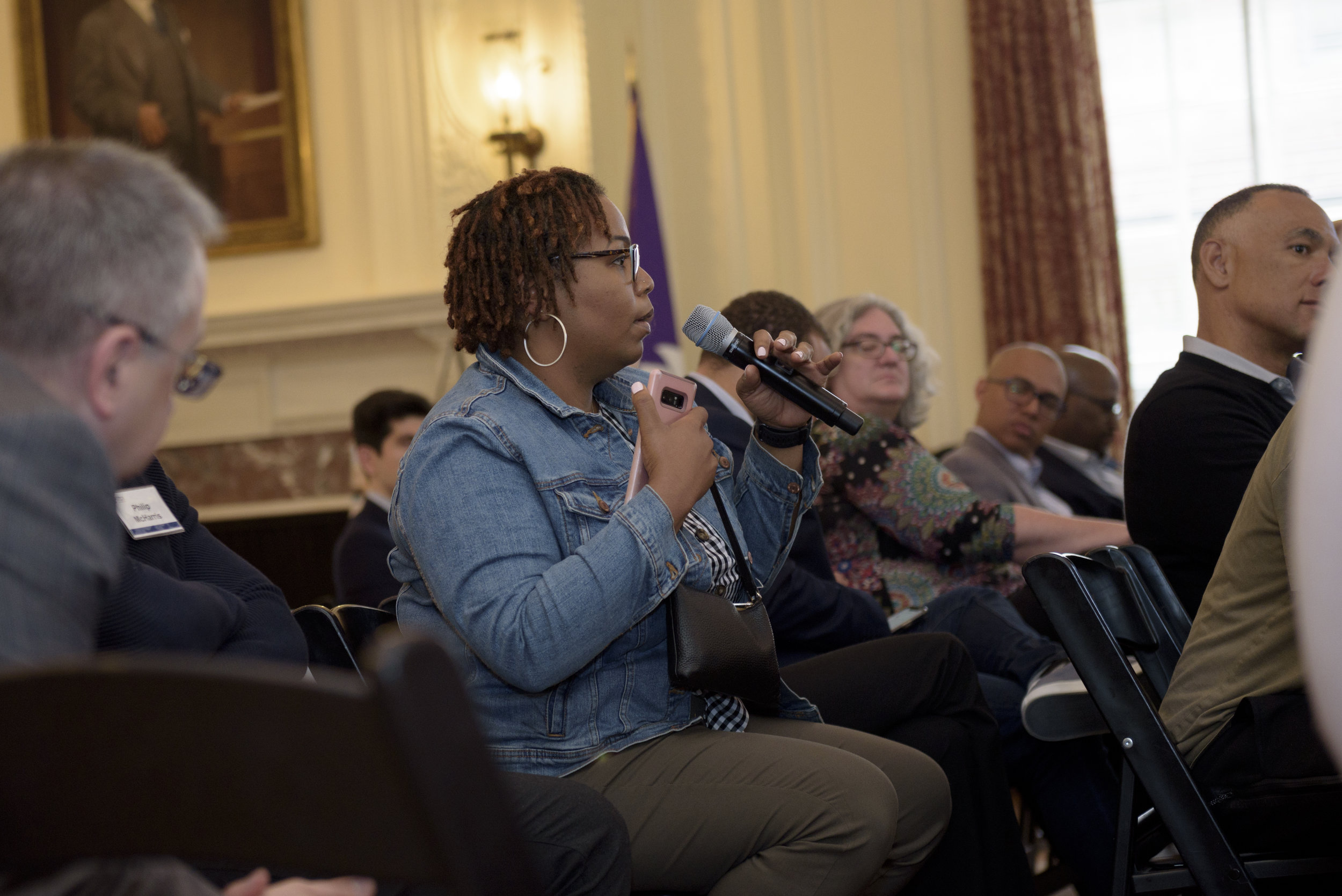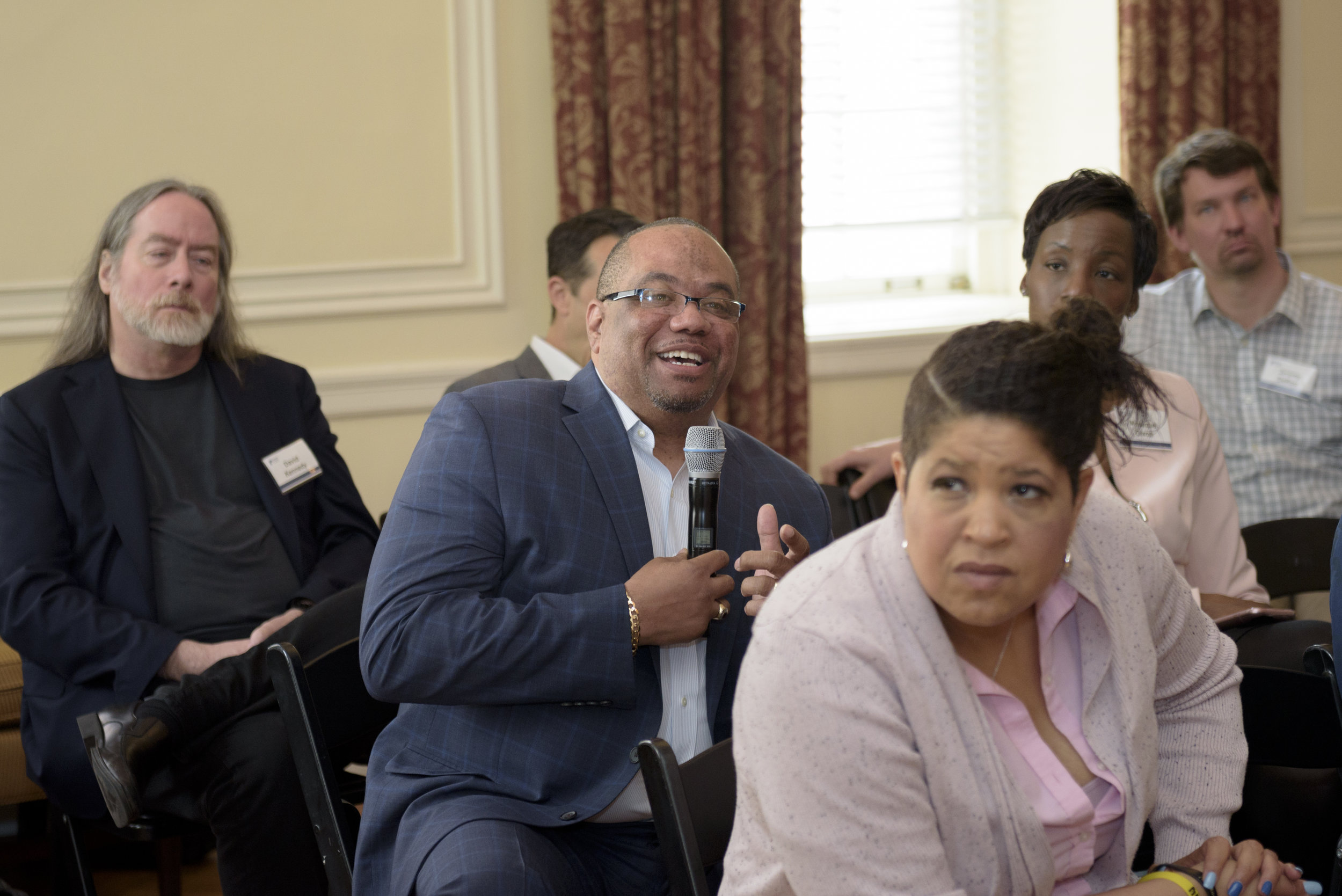While many law enforcement officials and community leaders alike have stressed the need for more “engagement” between the public and the police, there hasn’t always been agreement on the underlying goals of engagement. Is it improved relationships? More transparency?
At the Policing Project, we believe “real engagement” is more than just conversation—it means that the public should have the ability to define “public safety” in their communities. But how do we get there? Over the course of the last year, we set out to study police-community engagement and learn from successes and challenges across the country.
In partnership with the National Police Foundation and the National Urban League, we began with a preliminary report, Beyond the Conversation: Ensuring Meaningful Police-Community Engagement, based on the results of our nationwide survey of existing engagement efforts. We found that although there is significant interest from both the public and the police for more collaborative engagement, a great deal of work remains to ensure the public has a say in the policing policies and practices that affect them.
From there, representatives from the Policing Project and the National Police Foundation visited Grand Rapids, Austin, Stockton, Salt Lake City, Washtenaw County and more to observe local efforts to involve the public in policing decisions. The field research component of our study will also continue this summer in partnership with Latham & Watkins.

Adele Lewis of the Nashville Community Oversight Board (left) and Rodney Harrison, chief of patrol services for the New York Police Department.

Scott Thomsom, chief of Camden County Police Department and president of the Police Executive Research Forum, with Adele Lewis.

Participants in our workshop gathered at the NYU Law campus.

Policing Project Deputy Director Farhang Heydari facilitates a small group discussion at our workshop.

Nicole Lazarre of the National Urban League in small group discussion.

Allie Meizlish facilitating a small group discussion in our first session of the convening.

Divine Pryor, executive director of Center for Nuleadership on Urban Solutions, with Brandon Anderson, founder of Raheem AI.

Chris Magnus, chief of of the Tucson Police Department and Policing Project advisory board member.

Mustafa Abdul-Hamid, co-founder and vice president of My90, in small group workshop.

(From left): Susan Shah, of Trinity Church Wall Street, and Lex Scott, of the Community Advocates Group of Salt Lake City and Black Lives Matter Utah, in small group conversation.

Jamel Campbell-Gooch of the Nashville Community Oversight Board and Policing Project Senior Program Manager Brian Chen.

Wesley Lowery of The Washington Post in small group discussion.

Robin Arredondo-Savage, council member for the City of Tempe and board member for National League of Cities.

Gregory Thomas of the Kings County District Attorney’s Office, and Chris Harris of Austin’s Just Liberty.

(From left) Blake Norton, senior vice president of the National Police Foundation; Stockton Chief of Police Eric Jones; and Mayor Stephen Benjamin of Columbia, South Carolina.

Chas Moore, executive director and founder of Austin Justice Coalition, in small group discussion.

Jeremy DeRoo, executive director of LINC UP of Grand Rapids, Michigan, with Brian Chen.

Nicholas Mosby, member of the Maryland House of Delegates, and Policing Project Senior Program Manager Ariele Le Grand

Sheriff Jerry Clayton of Washtenaw County, Michigan, and Susan Shah, managing director of racial justice at Trinity Church Wall Street.

Ganesha Martin of the Baltimore Mayor’s Office of Criminal Justice, and Monique Dixon of the NAACP Legal Defense and Educational Fund.

(From left): Policing Project Deputy Director Maria Ponomarenko, Advisory Board Co-Chair Chief Scott Thomson, and Director Barry Friedman

David Kennedy of the National Network for Safe Communities in conversation with Alex Trouteaud of Arnold Ventures.

Full group discussion in our second session.

Policing Project Director Barry Friedman moderating the group discussion,.

Chas Moore in group discussion.

Lex Scott and Grand Rapids City Commissioner Joe Jones in group discussion.

Mecole Jordan, executive director of United Congress of Community and Religious Organizations and coordinator of Chicago GAPA.

Ronald Davis, partner of 21CP Solutions and former director of the U.S. DOJ Office of Community Oriented Policing Services.

Nahal Zamani of the Center for Constitutional Rights in group discussion.

Tracey Meares of Yale Law School and The Justice Collaboratory in full group discussion.

Full group conversation

W. Cyrus Garrett, manager of the Obama Foundation’s My Brother’s Keeper communities team.

(From Left) Austin Police Department Lieutenant Chris Vallejo and Ralikh Hayes of the NAACP Legal Defense and Educational Fund (speaking).

Adam Gross of Business and Professional People for the Public Interest and Chicago Inspector General Joseph Ferguson (speaking).
A Convening to Move Forward
Last week, we invited community leaders, police officials, inspectors general, and government representatives from across the country to the NYU School of Law campus to discuss the challenges of police-community engagement. Over the course of a two-day, intensive workshop, participants tackled issues ranging from transparency and accountability to power sharing and the role of commissions and inspectors general to provide the regulatory and oversight foundations that promote well-informed engagement between police and community.
The collective knowledge and experience of the participants will become the basis for the next phase of our project: a set of practical materials for policing agencies, elected officials, and community members to promote more effective engagement in their own jurisdictions.
We learned a tremendous amount from the expertise of this incredible group and the wide-ranging exchange of ideas and perspectives we had over two days. We’re excited to share the tools that will come from this experience and to continue learning from each other.

